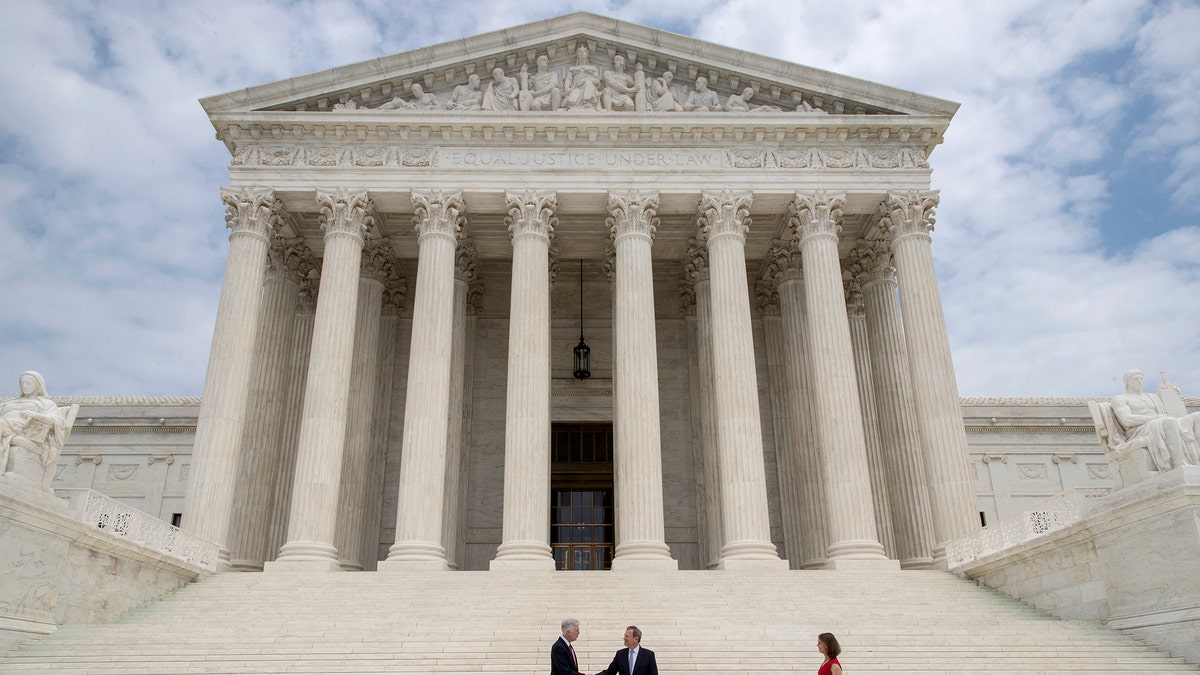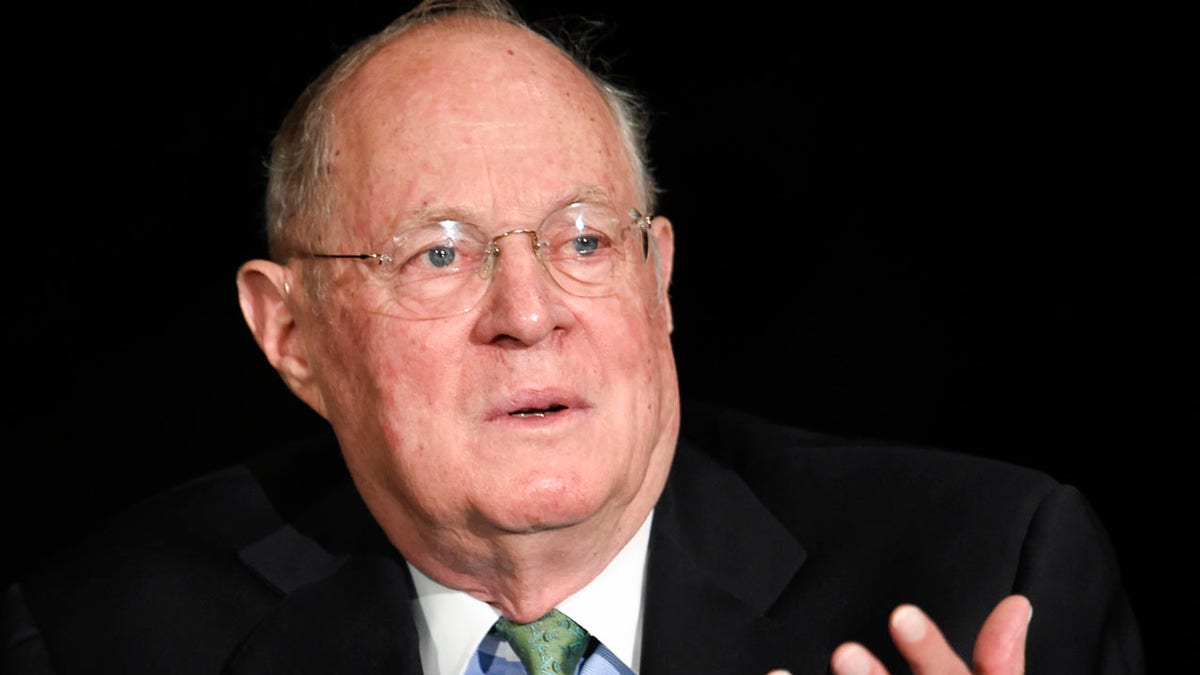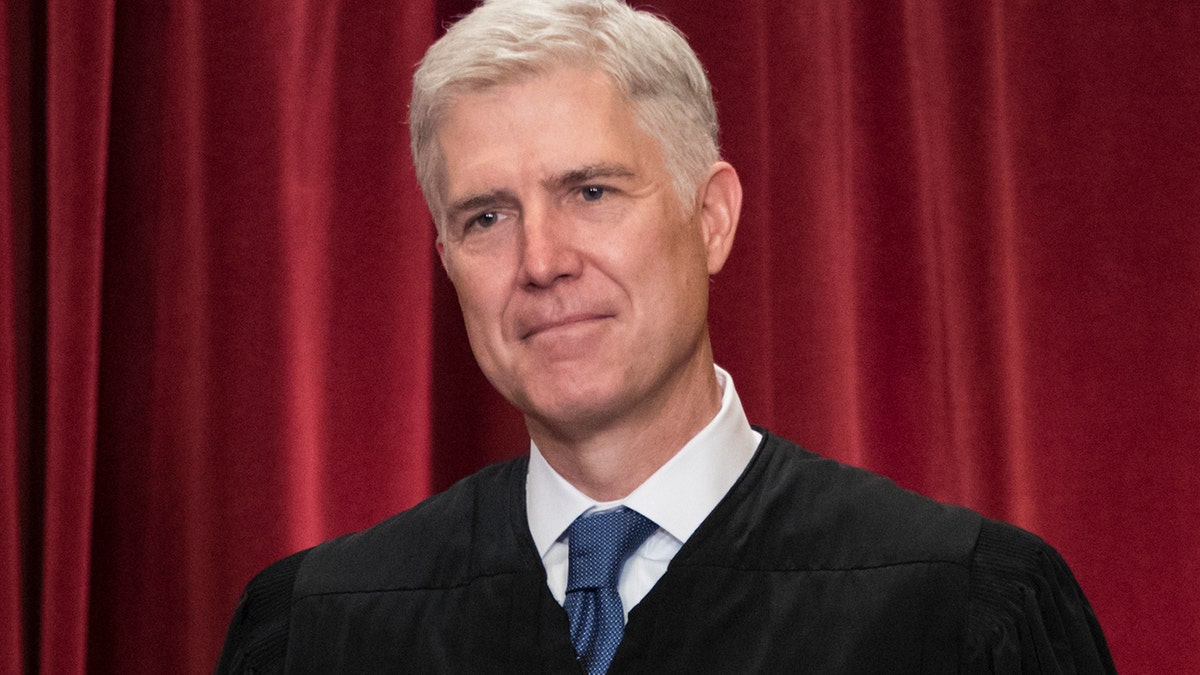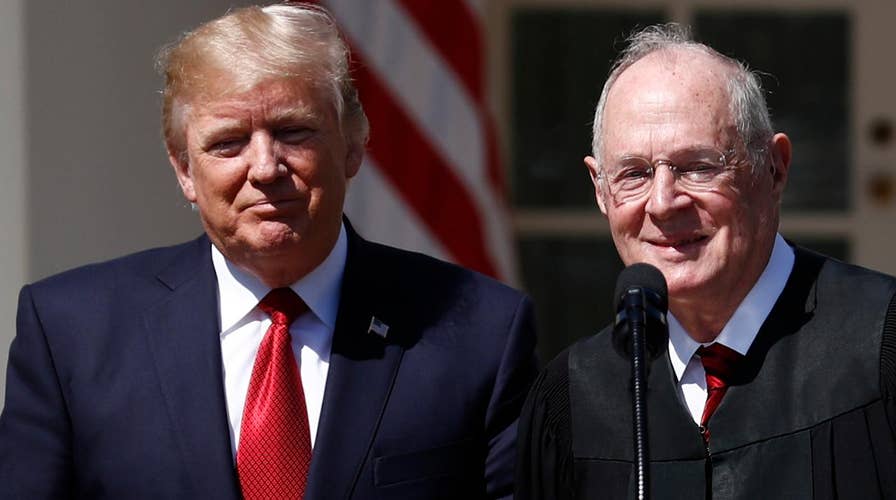Another Supreme Court vacancy? Kennedy rumored to retire
80-year-old US Supreme Court Justice Anthony Kennedy rumored to be considering retirement
Supreme Court Associate Justice Anthony Kennedy is rumored to be poised to announce his retirement and, if it happens, it will trigger a confirmation battle that could make the fight over Neil Gorsuch look like a playground skirmish.
That’s because Gorsuch replaced Antonin Scalia, who was a reliable conservative vote. Kennedy, on the other hand, while considered a conservative, has often found himself in the middle, and become the court’s “swing vote.” Thus, whoever replaces him could very much determine in what direction the court will go.

New Associate Supreme Court Justice Neil Gorsuch, left, shakes hands with Chief Justice John Roberts, as Gorsuch's wife Louise arrives at right, at the Supreme Court in Washington, Thursday, June 15, 2017, following Gorsuch investiture ceremony to mark his ascension to the bench. (AP Photo/J. Scott Applewhite) (AP)
There are a number of areas where Kennedy has not followed the “conservative” line. Maybe nowhere has this been clearer than in cases dealing with sexual orientation.
"If President Trump gets the opportunity to nominate someone to replace Kennedy, the spotlight will be intense."
The 80-year-old Kennedy, the court's longest serving justice, wrote the majority opinion in Romer v. Evans (1996) that stated homosexuals and bisexuals can’t be singled out by a statute that denies them special protection.
Later he wrote the majority opinion in Lawrence v. Texas (2003), overturning Supreme Court precedent and striking down state sodomy laws.

FILE - In this July 15, 2015 file photo, Supreme Court Justice Anthony Kennedy speaks in San Diego. As one justice settles into his new job at the Supreme Court, is another about to leave? Eighty-year-old Kennedy is so far refusing to comment on speculation that he may soon retire after 29 years on the court. (AP Photo/Denis Poroy, File) (AP)
Then, in one of his best-known and controversial opinions, Obergefell v. Hodges, (2015), he declared in the 5-4 decision that same-sex couples have a right to marry.
The court is almost certain to face cutting edge legal questions regarding gender and sexuality in upcoming years, and whoever replaces Kennedy could likely make the difference in those decisions.
Another landmark opinion where he agreed with the court’s liberals was Boumediene v. Bush (2008). It was his 5-4 majority opinion that declared foreign terrorist suspects held at Guantanamo had the right to challenge their detention in U.S. courts.

Associate Justice Neil Gorsuch joins other justices of the U.S. Supreme Court for an official group portrait at the Supreme Court Building in Washington, Thursday. June 1, 2017. Neil Gorsuch was nominated by President Donald Trump in 2017. (AP Photo/J. Scott Applewhite) (AP)
And in Kennedy v. Louisiana (2008), he once again sided with the liberal bloc, writing a 5-4 majority opinion that declared the death penalty is unconstitutional in cases where the victim is not killed and there is no intent to kill (the particular case dealt with the rape of a child).
But often he’d stymie the wishes of the left.
The most famous example would almost certainly be his controversial 5-4 majority opinion in Citizens United v. FEC (2010). The case held that certain spending restrictions — on unions, corporations and some other groups — for money that would promote political speech before an election, are unconstitutional under the First Amendment.
Democrats have been hoping to overturn the ruling. Indeed, Hillary Clinton explicitly campaigned on this, and if she’d been elected and had the chance to replace Kennedy, the Democrats might have seen it happen. But if Donald Trump gets to replace Kennedy, the odds of Citizens United being overturned are far less likely (though not impossible).
Of course, these are examples of cases he authored. Just as important for American jurisprudence are opinions he merely joined.
For example, in Planned Parenthood v. Casey (1992), Justice Kennedy signed on to the decision, which reaffirmed the fundamental right to an abortion under Roe v. Wade. For years many had hoped the original opinion would be set aside, but this seemed to end the issue. (Not that Justice Kennedy believes any limitation on abortion is disallowed. In Gonzales v. Carhart (2007), he wrote the majority opinion, which found The Partial-Birth Abortion Ban Act of 2003 to be constitutional.)
In fact, Kennedy has often been a deciding vote on an array of controversies -- his legal views have shaped the court’s jurisprudence on issues such as gun control, the death penalty, hate speech, religious freedom, environmental law, criminal procedure and affirmative action.
So if President Trump gets the opportunity to nominate someone to replace Kennedy, the spotlight will be intense. So intense, the candidate may wilt.
No matter who takes Kennedy’s place, the nominee will have a big robe to fill.

